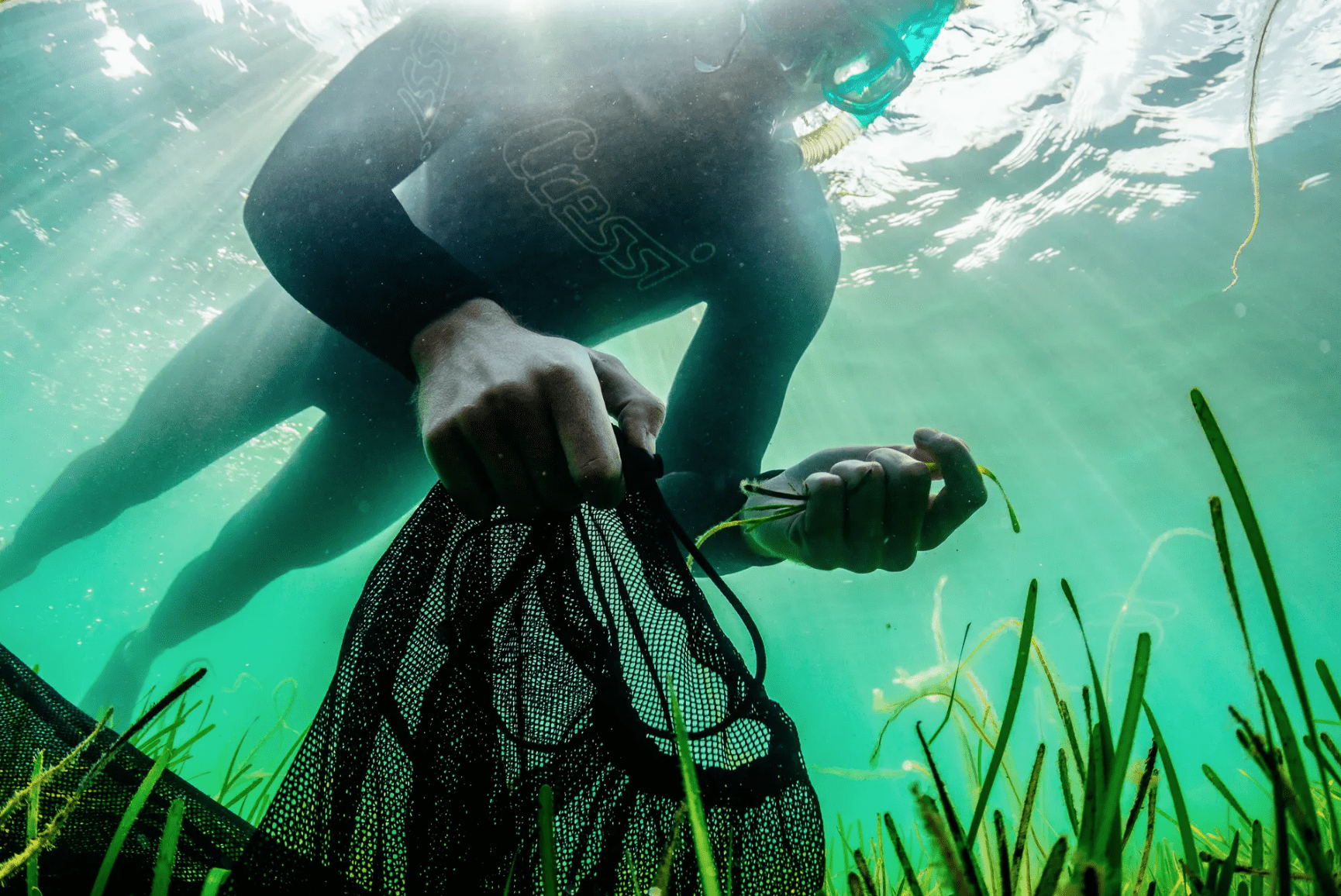A million seagrass seeds, enough to cover 20,000 square meters of seafloor, have been gathered from existing meadows to be planted this upcoming winter in the Dale Bay in Pembrokeshire in an effort to undertake the largest seagrass restoration project the UK has ever seen.
This comes after reports of the disappearance of 92% of the UK’s seagrass in the last century due to pollution, surface runoff, coastal development and damage from destructive fishing methods and boating. Alec Taylor, head of marine policy at WWF (one of the organisations involved in the project), said: “Seagrass is a wonder plant that doesn’t get the recognition it deserves, so its steep decline is extremely concerning.”
Seagrass has the ability to capture carbon from the atmosphere up to 35 times faster than tropical rainforests, and accounts for 10% of the ocean’s carbon storage capacity, all while occupying only 0.2% of the ocean floor. This ‘wonder plant’ also provides a nursery and food source for a wide variety of marine life, protects coastlines from erosion, produces oxygen, absorbs human pollution and even has the unique ability to protect coral reefs from diseases and bleaching.
This flowering marine plant is also a backbone of the fishing industry, indirectly supporting 1/3 of fisheries globally; 32% of commercial fish species depend on seagrass for at least one part of their life cycle.
Dr Richard Unsworth of Swansea University, another partnership of the recovery effort, said: “If we want to provide our fisheries and our coastlines with the potential to adapt to a rapidly changing climate, we need to restore the habitats and biodiversity that support their productivity.”
Experts are working with local communities of volunteers for each stage of the project, from seed extraction to deciding where to replant, so as not to affect local livelihoods and lifestyles. On a larger scale, the organizations involved also hope that the pilot project will lead the way for further seagrass restoration across the UK. The project calls on governments not only to foster the re-growth of seagrass meadows, but for the UK to become a global leader in healing our oceans and tackling climate change.
Without seagrass, the many species that depend on it will continue to disappear, we would see a potentially drastic negative shift in seafood availability and an increase in the amount of carbon being released into the atmosphere. The future of seagrass ecosystems will largely depend on the dedication and success of this pilot project in re-growing the lush meadows of seagrass and subsequently influencing further action along the rest of the UK coast.
image source: Lewis Jefferies/WWF-UK

